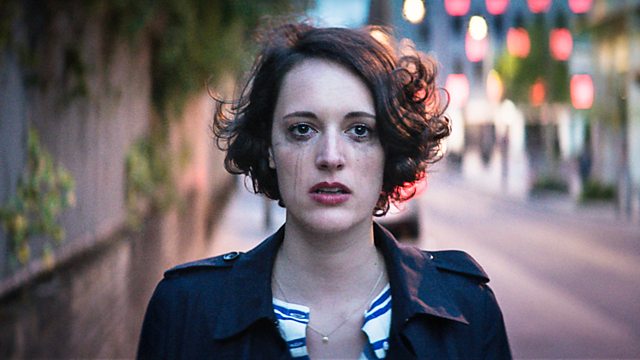 Of all the terrific comedies this fall (almost exclusively streaming or on cable) just one stars a face that is likely to be absolutely new to audiences.
Of all the terrific comedies this fall (almost exclusively streaming or on cable) just one stars a face that is likely to be absolutely new to audiences.
“Fleabag” (Amazon Prime, streaming) stars a frisky Brit named Phoebe Waller-Bridge who chronicles her terrible dating life in a comedy that breaks the fourth wall so regularly, she is practically in conversation with the viewer throughout.
Based on a successful one-woman play she wrote and starred in, Waller-Bridge not only has a very direct relation to her character — having written every word — but she keeps that personal connection with the viewer, not just in narrating, or the occasional look to the camera, but narration and asides that occur during the action, such that the other characters in the scene don’t even see.
“Fleabag” is a bit of a challenge, not just because of her sexual appetite or lack of shame, but also because of some of the terrible things she does just to have enough money to keep afloat (a trait that people have accepted from male ne’er-do-wells in comedies but not so much in women).
Waller-Bridge told reporters at the TV Critics Association summer press tour that when she wrote her one-woman play, “I was kind of raging at the time. I was, like, in my mid 30s and I mean mid 20s, and I felt sort of quite angry and ragey and not sure sort of why. I think it had something to do with how sort of confused I was about feminism and about how to be a kind of good feminist and also how I was allowed to express myself or how much sex women should or shouldn’t be having.
“All those sort of questions were happening, being asked by my contemporaries,” she said. “And then I was asked to do this kind of stand up storytelling night where I was allowed to sort of talk about anything I wanted to talk about. And this character, this very naughty, dark hearted character came out very quickly, which I think was sort of the shadow of how I was feeling at the time.”
It’s all better know; she’s been happily married for two years to a guy who contacted her after one of the shows. And it made “Fleabag” less about her and more about this character who confides to the audience more than maybe any other before her on TV.
“I really wanted to play with the idea of complicity with the audience and make them feel like they’re actually connected to Fleabag and that she’s keeping you complicit in the story, so she can look at you and say, ‘You know what I mean?’
“And even if you don’t,” she added, “you’re kind of involuntarily complicit in her story. And that was a lot to do with the kind of control I wanted her to have over the audience’s experience and so that she feels like in the play.”
In the one-woman show, “everything that she would talk about via the vision of her world was the only thing the audience could see, and so she was completely in control of the narration of the story,” Waller-Bridge said.
“So when creating the TV show, that sense that she was arresting you and she was holding you and she had control was something I really wanted to start with.”
It’s not there in all of the six episodes, which are all available at once.
“As the show goes on, she starts losing control, and yet the audience still stays there,” she said. “So you still have that complicity, but it gets a bit sort of broken, if that makes sense.”
You’ll have to see for yourself.